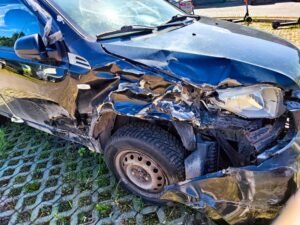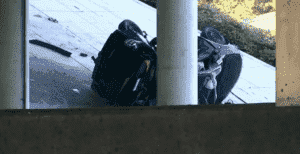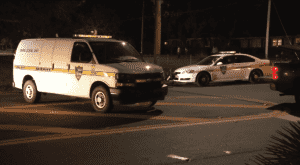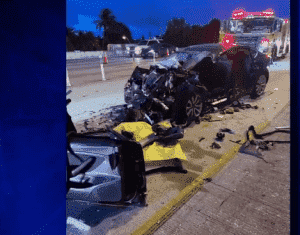
Property damage claims represent a crucial component of car accident recovery, often providing the quickest path to compensation after a collision. Unlike injury claims that may take months or years to resolve, property damage claims can typically be settled within weeks when handled properly.
However, insurance companies may still attempt to minimize payouts or delay settlements, making it essential to understand the proper procedures and your rights under Florida law. A knowledgeable Miami car accident lawyer can help ensure you receive fair compensation for all vehicle damage and related expenses.
To file a property damage claim after a Miami car accident, contact both your insurance company and the at–fault driver‘s insurer, document all vehicle damage with photographs and repair estimates, and submit your claim with all supporting documentation.
Immediate Steps After the Accident for Property Damage
Document all vehicle damage thoroughly at the accident scene before vehicles are moved, if it’s safe to do so. Take extensive photographs from multiple angles, including wide shots showing the overall damage and close-up images of specific impact areas, scratches, dents, and broken parts.
Exchange insurance information with all drivers involved, including policy numbers, insurance company names, and contact information. Also, collect driver’s license numbers, vehicle identification numbers, and license plate information for all vehicles involved in the accident.
Contact the police to report the accident, as the official police report becomes crucial evidence for your property damage claim. The report will document the accident circumstances, identify the parties involved, and often include the investigating officer’s determination of fault, which insurance companies heavily consider when processing claims.
Understanding Your Insurance Coverage Options
Florida drivers have multiple options for pursuing property damage claims depending on their insurance coverage and the accident circumstances. Understanding these options helps you choose the path most likely to result in prompt, fair compensation for your vehicle damage.
Coverage Options
Your collision coverage pays for vehicle damage regardless of who caused the accident, minus your deductible. This option typically provides the fastest resolution since you’re dealing directly with your own insurance company, though you’ll need to pay your deductible upfront and may face rate increases.
Filing a third-party claim against the at-fault driver’s property damage liability coverage can result in full compensation without paying a deductible, but may take longer to resolve and requires proving the other driver’s fault. This option works best when the fault is clear and the other driver has adequate insurance coverage.
If the at-fault driver is uninsured or underinsured, your uninsured/underinsured motorist property damage coverage may apply. This coverage typically has lower limits than collision coverage but can provide compensation when other options aren’t available.
Documenting Your Property Damage Claim
Obtain multiple repair estimates from reputable auto body shops to establish the extent and cost of repairs. Most insurance companies require at least two estimates, and having three or more estimates strengthens your negotiating position and helps ensure you receive adequate compensation for quality repairs.
Keep detailed records of all accident-related expenses, including towing costs, storage fees, rental car expenses, and any emergency repairs needed to make your vehicle safe to drive. These additional costs are typically recoverable as part of your property damage claim but require proper documentation.
Here are additional steps to take while your claim is processed:
- Maintain the original repair estimates and any supplemental estimates for hidden damage
- Save all receipts for accident-related expenses and temporary transportation
- Document any personal property damaged in the accident, such as electronics or clothing
- Take photographs of your vehicle’s condition before repairs begin
- Keep records of lost work time due to dealing with vehicle damage and repairs
Working With Insurance Adjusters
Insurance adjusters investigate property damage claims and determine settlement amounts based on their evaluation of vehicle damage, repair costs, and policy coverage. Understanding how adjusters work helps you navigate this process effectively and advocate for fair treatment.
The adjuster will typically inspect your vehicle to assess damage and may provide their own repair estimate. Be prepared for the adjuster’s estimate to potentially be lower than estimates from auto body shops, as insurance companies often use different pricing methodologies and may prefer less expensive repair options.
Don’t accept the first settlement offer without carefully reviewing the adjuster’s evaluation and comparing it to independent repair estimates. Adjusters often start with low offers, expecting negotiation, and may not account for all damage or necessary repairs in their initial assessment.
Dealing with Total Loss Determinations
When repair costs exceed a certain percentage of your vehicle’s actual cash value (typically 75-80% in Florida), insurance companies declare vehicles a total loss. Understanding total loss procedures helps ensure you receive fair compensation for your vehicle’s value.
Insurance companies calculate actual cash value using various methods, including market analysis of similar vehicles, depreciation calculations, and condition assessments. This value becomes the basis for your total loss settlement, minus any applicable deductible.
If you disagree with the total loss determination, you may have the option to keep your vehicle and receive a reduced settlement amount. The insurance company will deduct salvage value from your settlement, allowing you to retain ownership while receiving compensation for the damage.
Maximizing Your Property Damage Claim After a Miami Car Accident
Understanding all available compensation helps ensure you don’t overlook potential recovery options in your property damage claim. Property damage extends beyond just vehicle repairs to include various related expenses and losses.
Additional Damages You Could Claim
Rental car reimbursement covers temporary transportation while your vehicle is being repaired or replaced. Review your policy limits for rental coverage and understand how long coverage continues, as some policies limit rental reimbursement to specific time periods rather than the full repair duration.
Diminished value claims compensate for the reduction in your vehicle’s market value after accident repairs, even when repairs are completed properly. Florida law allows diminished value claims against at-fault drivers’ insurance, though these claims require expert valuation to establish the amount of value loss.
Loss of use damages may be available when you’re unable to use your vehicle for an extended period. These damages recognize that even when rental cars are provided, you may experience inconvenience and additional expenses related to the temporary loss of your vehicle.
When Legal Help May Be Necessary
Consider legal help when insurance companies deny valid claims, offer unreasonably low settlements, or delay processing without justification. Attorneys can apply pressure on insurance companies and use legal procedures to expedite claim resolution.
Complex accidents involving multiple vehicles, disputed fault, or commercial vehicles may require legal expertise to navigate insurance coverage issues and ensure all potentially responsible parties are held accountable for property damage.
If your property damage claim involves significant amounts or you suspect insurance bad faith practices, consult a lawyer. Legal representation can help maximize your property damage claim after a Miami car accident and hold insurance companies accountable for fair claim handling practices.
Work with Anidjar & Levine to Win Your Property Damage Claim
At Anidjar & Levine, we understand that property damage claims, while seemingly straightforward, can become complicated when insurance companies fail to honor their obligations to policyholders and accident victims.
Our experienced legal team helps Miami car accident victims navigate property damage disputes and secure fair compensation for vehicle repairs, total loss settlements, and related expenses.
Contact us today for a free consultation if you’re experiencing problems with your property damage claim after a Miami car accident or believe you’re not receiving fair treatment from insurance companies.










